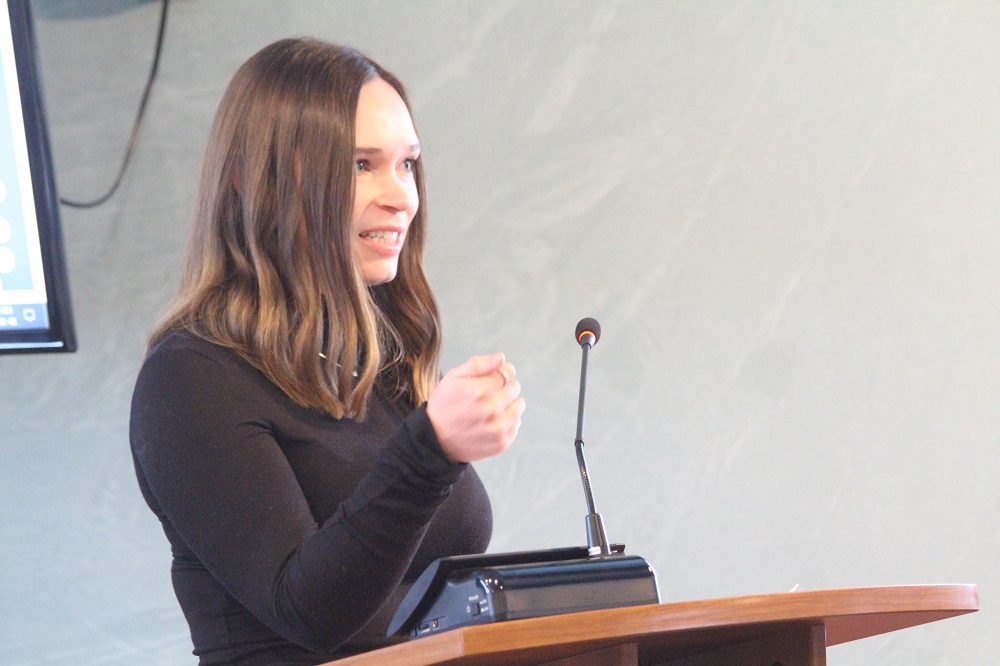The County of Haliburton is planning to reduce its greenhouse gas emissions by 15 per cent from its 2018 levels over the next decade.
The committee of the whole voted to recommend the target during its Jan. 8 meeting. If approved by council, the county would aim to bring its carbon dioxide emissions from a baseline of 859 tonnes annually to 730 tonnes by 2030. The target would be incorporated as part of the county’s future climate change mitigation plan.
The new climate change co-ordinator Korey McKay said the targets she presented were carefully balanced and feasible.
“We want the target to stress urgency but also be realistic,” McKay said. “We know the science is telling us we need to reduce our emission as much as possible and as soon as possible and we want to show leadership. But at the same time, we don’t want to set ourselves up for failure.”
The county’s emissions are divided into only two categories: its vehicle fleet, comprising 82 per cent of the total emissions, and its buildings.
The 15 per cent reduction was technically the least ambitious of three options presented by staff, who also offered 17 per cent and 20 per cent targets. But McKay said all the options were ambitious.
Still, councillors expressed some concern about actually achieving any of the targets presented. Growth was a major issue cited. Under the status quo, based on current population growth rates, staff estimate greenhouse emissions would be 13 per cent higher in 2030 compared to 2018.
“This is nice to put on a piece of paper,” Coun. Patrick Kennedy said. “But where the rubber meets the road, I don’t think you’re going to be able to achieve it when you have a growing county here.”
“I struggle with how you choose a target, when you pick a target when you don’t know the impacts,” Coun. Carol Moffatt said.
She further said it was important the plan be flexible as more information comes about what reductions will mean financially and practically.
“People are watching. We want to work with the public and do the right things for the right reasons,” Moffatt said. “I would feel awful if we set a target we couldn’t meet and felt that we let people down.”
Director of planning Charsley White said staff worked on making their proposed targets realistic. She added longer-term decision-making, such as replacing gas vehicles with hybrids, would slowly reduce the municipal carbon footprint.
“Even if we’re not perfect at getting to the target that is selected, any change is better than doing nothing,” White said. “It’s not intended to be a static plan. We’ll progress as we go and build upon the lessons that we’ve learned.”





